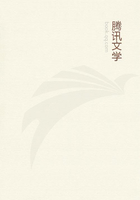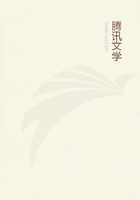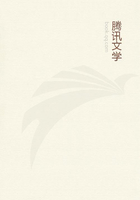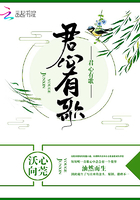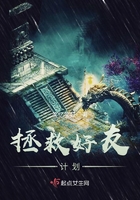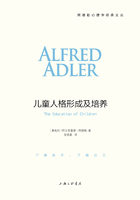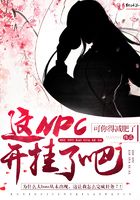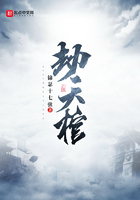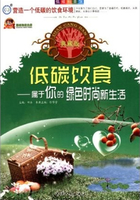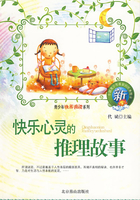It was for this society--or rather for his own sake--that the 'Cortigiano,' as described to us by Castiglione, educated himself.He was the ideal man of society, and was regarded by the civili- zation of that age as its choicest flower; and the court existed for him rather than he for the court.Indeed, such a man would have been out of place at any court, since he himself possessed all the gifts and the bearing of an accomplished ruler, and because his calm supremacy in all things, both outward and spiritual, implied a too independent nature.The inner impulse which inspired him was directed, though our author does not acknowledge the fact, not to the service of the prince, but to his own perfection.One instance will make this clear.In time of war the courtier refuses even useful and perilous tasks, if they are not beautiful and dignified in themselves, such as, for instance, the capture of a herd of cattle; what urges him to take part in war is not duty but 'l'onore.' The moral relation to the prince, as described in the fourth book, is singularly free and independent.The theory of well-bred love-making, set forth in the third book, is full of delicate psychological observation, which perhaps would be more in place in a treatise on human nature generally; and the magnificent praise of ideal love, which occurs at the end of the fourth book, and which rises to a lyrical elevation of feeling, has no connection whatever with the special object of the work.Yet here, as in the 'Asolani' of Bembo, the culture of the time shows itself in the delicacy with which this sentiment is represented and analyzed.It is true that these writers are not in all cases to be taken literally; but that the discourses they give us were actually frequent in good society, cannot be doubted, and that it was an affectation, but genuine passion, which appeared in this dress, we shall see further on.
Among outward accomplishments, the so-called knightly exercises were expected in thorough perfection from the courtier, and besides these much that could only exist at courts highly organized and based on personal emulation, such as were not to be found out of Italy.Other points obviously rest on an abstract notion of individual perfection.
The courtier must be at home in all noble sports, among them running, leaping, swimming and wrestling; he must, above all things, be a good dancer and, as a matter of course, an accomplished rider.He must be master of several languages, at all events of Latin and Italian; he must be familiar with literature and have some knowledge of the fine arts.In music a certain practical skill was expected of him, which he was bound, nevertheless, to keep as secret as possible.All this is not to be taken too seriously, except what relates to the use of arms.The mutual interaction of these gifts and accomplishments results in the perfect man, in whom no one quality usurps the place of the rest.
So much is certain, that in the sixteenth century the Italians had all Europe for their pupils both theoretically and practically in every noble bodily exercise and in the habits and manners of good society.
Their instructions and their illustrated books on riding, fencing, and dancing served as the model to other countries.Gymnastics as an art, apart both from military training and from mere amusement, was probably first taught by Vittorino da Feltre and after his time became essential to a complete education.The important fact is that they were taught systematically, though what exercises were most in favour, and whether they resembled those now in use, we are unable to say.But we may infer, not only from the general character of the people, but from positive evidence which has been left for us, that not only strength and skill, but grace of movement was one of the main objects of physical training.It is enough to remind the reader of the great Federigo of Urbino directing the evening games of the young people committed to his care.
The games and contests of the popular classes did not differ essentially from those which prevailed elsewhere in Europe.In the maritime cities boat-racing was among the number, and the Venetian regattas were famous at an early period.The classical game of Italy was and is the ball; and this was probably played at the time of the Renaissance with more zeal and brilliancy than elsewhere.But on this point no distinct evidence is forthcoming.
Music A few words on music will not be out of place in this part of our work.
Musical composition down to the year 1500 was chiefly in the hands of the Flemish school, whose originality and artistic dexterity were greatly admired.Side by side with this, there nevertheless existed an Italian school, which probably stood nearer to our present taste.Half a century later came Palestrina, whose genius still works powerfully among us.We learn among other facts that he was a great innovator; but whether he or others took the decisive part in shaping the musical language of the modern world lies beyond the judgement of the unprofessional critic.Leaving on one side the history of musical composition, we shall confine ourselves to the position which music held in the social life of the day.
A fact most characteristic of the Renaissance and of Italy is the specialization of the orchestra, the search for new instruments and modes of sound, and, in close connection with this tendency, the formation of a class of 'virtuosi,' who devoted their whole attention to particular instruments or particular branches of music.
Of the more complex instruments, which were perfected and widely diffused at a very early period, we find not only the organ, but a corresponding string instrument, the 'gravicembalo' or 'clavicembalo.'

